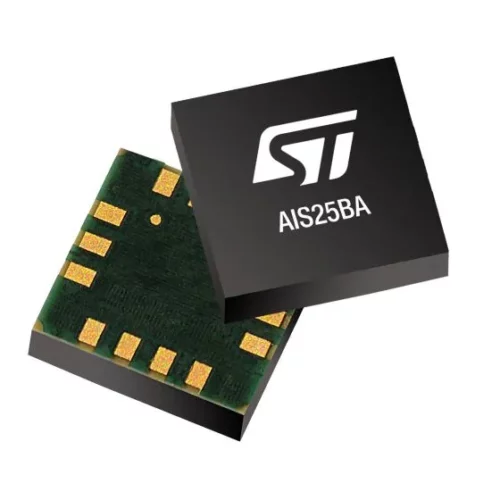Optimized for sensing road noise and related vibration, AIS25BA automotive MEMS accelerometer from STMicroelectronics offers accuracy in controlling and quieting in-cabin acoustic environment.

Electric Vehicles (EV) are intrinsically less noisy than internal combustion engine cars (ICE), car makers are focused on further lowering in-cabin noise due to wheel or vibration. These efforts aim to allow passengers to better enjoy the journey in a quieter ambient environment. Noise cancellation algorithms, working with an array of sensors installed throughout the vehicle, measure the ambient sounds, and eliminate vibration using noise-canceling waveforms that act as anti-vibration (canceling) sounds.
The sensor is a micro electro-mechanical system (MEMs) ICs that give the AIS25BA superior characteristics for enhancing RNC system accuracy. The sensor has the lowest electrical noise in the market. It has the fast response/low latency needed by the RNC system to calculate corrective waveforms in real-time as well as wide bandwidth to capture disturbances across the full spectrum of sound frequency relevant for the application. Its wide temperature range and mechanical robustness allows placement in the harshest places of today’s vehicles: near the engine or electric drive as well as close to wheels and suspension.
With this outstanding noise performance, frequency response extends to 2 and hence covers all the spectrum relevant for in-car noise cancellation. Similarly, the total sensor latency of 266µs is engineered for leaving the system plenty of time to generate noise-cancellation signals in real-time.
In addition, the sensor has a time-division multiplex (TDM) digital interface that enables the system to synchronize the outputs from multiple accelerometers installed to measure vibrations throughout the vehicle. This audio-friendly interface also allows easy connection to other types of data buses widely adopted in automotive. The full-scale measurement range is selectable up to ±7.7g, giving plenty of margin with respect to the intense vibrations typical of the application.









